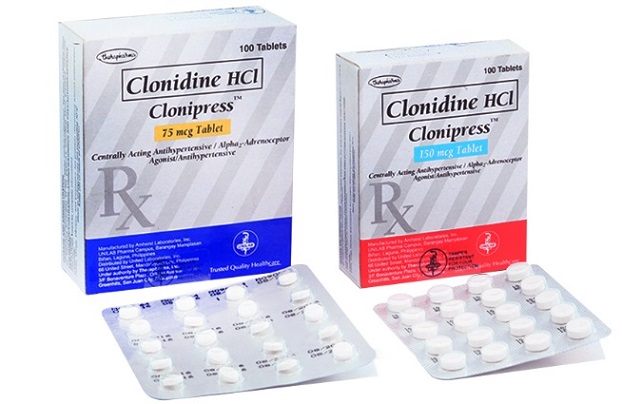Nikhil Prasad Fact checked by:Thailand Medical News Team Aug 05, 2025 6 months, 3 weeks, 6 days, 8 hours, 15 minutes ago
Thailand Medical News: New Hope for Brain Vessel Health
A groundbreaking study by Turkish researchers has found that clonidine, a commonly used drug to lower blood pressure, might also protect the blood vessels in the brain from damage that can lead to cerebral aneurysms. These aneurysms, which are dangerous bulges in brain arteries, can rupture without warning and cause serious strokes or death.

Clonidine Shows Promise in Preventing Brain Aneurysm Formation
The research was conducted by scientists from the University of Health Sciences in Gaziantep, Dicle University in Diyarbakir, and Atatürk University in Erzurum. The study focused on how clonidine could prevent injury to endothelial cells, which line the inner surface of blood vessels and are often the first to be damaged in aneurysm development. This
Thailand Medical News report reveals that clonidine worked by fighting inflammation and harmful molecules called reactive oxygen species (ROS), which are known to damage cells and weaken blood vessel walls.
Study Setup and What Was Discovered
To simulate aneurysm-related damage, the team exposed human brain blood vessel cells to angiotensin II, a substance that raises blood pressure and promotes inflammation. This exposure significantly lowered cell survival, increased inflammation, and caused high levels of ROS. However, when clonidine was given before the angiotensin II exposure, cell survival improved dramatically. At the highest tested dose, cell survival jumped from 34 percent to nearly 82 percent.
Clonidine also reduced the number of dying cells and restored healthy levels of nitric oxide, a chemical that helps blood vessels relax and function properly. More importantly, the drug lowered levels of key inflammatory molecules like TNF-α, IL-6, and IFN-γ, which are heavily involved in damaging vessel walls.
Key Genes Also Silenced
The study also showed that clonidine could reduce the activity of harmful genes such as VEGF, MMP-2, MMP-9, HMGB1, and NF-κB. These genes are known to promote inflammation and cause the breakdown of the structural support of blood vessels. By quieting these genes, clonidine could help prevent the weakening of arteries that leads to aneurysm formation.
What This Could Mean
The research clearly shows clonidine’s powerful protective effects on brain blood vessels under stress. While the study was conducted in a lab using human cells, the findings suggest that clonidine could one day be used to prevent aneurysms from forming or growing in at-risk patients. However, more animal and human trials are still needed to confirm its safety and effectiveness in real-life situations.
These findings offer new hope for those with high blood pressure or a family history of brain aneurysms. By targeting multiple processes like inflammation, oxidative stress, and genetic signaling, clonidine may serve as a future tool in neurovascular disease prevention.
The study findings were published in the peer reviewed journal: Life
https://ww
w.mdpi.com/2075-1729/15/8/1193
For the latest on Brain Aneurysm, keep on logging to
Thailand Medical News.
Read Also:
https://www.thailandmedical.news/news/drugs-and-brain-aneurysms-promising-findings-in-stroke-prevention
https://www.thailandmedical.news/news/medical-innovations-north-carolina-scientist-develop-novel-vortex-ultrasound-enabled-endovascular-thrombolysis-procedure-for-treating-brain-clots
https://www.thailandmedical.news/news/covid-19-induces-expression-of-anti-agtr1-autoantibodies-causing-endothelial-dysfunction-and-symptoms-treatable-by-losartan
